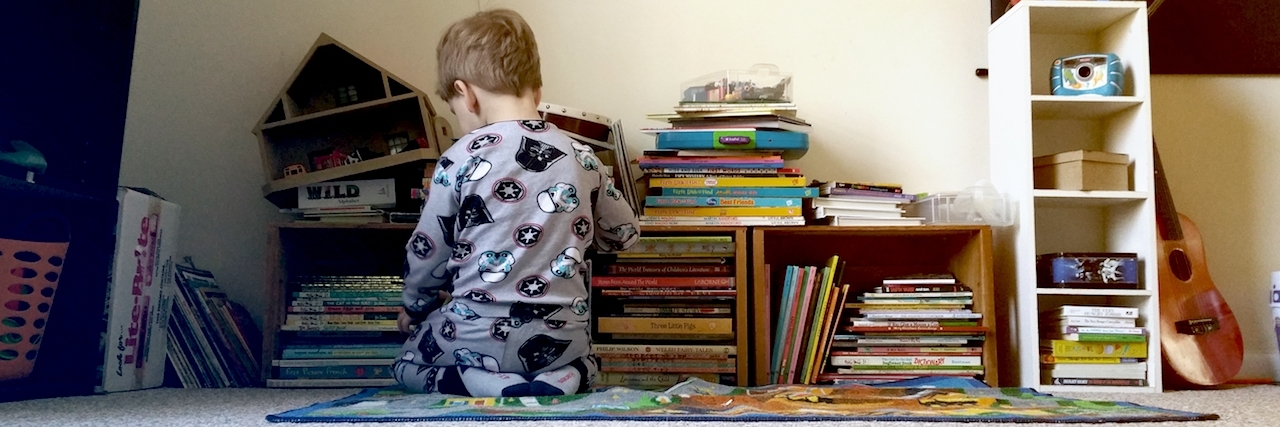Before having my son in 2012, I wasn’t aware of how much having mental illnesses would impact everything about being a parent. From my postpartum experience, to how I approach socializing him. Now, as he reaches his fourth year of life, he’s old enough to understand the basics of the depression and anxiety I live with every day. As much as I wish I could be a normal mom, my mental health affects our day-to-day routine and he deserves to know why I sometimes can’t play as actively as he wants.
The fact is I’m a woman with depression and anxiety. No matter how well I manage my symptoms through medication, therapy, meditation or even exercise, I will have these illnesses for my entire life. Symptoms, which impact my son each and every day, that won’t always be the same, but I want to start the conversation with him.
When my son was first born, I could barely interact with him or be alone with him for more than 30 minutes without crying or having a panic attack. Now, we spend our days between video games, art projects, reading endless amount of books and pretending to be Iron Man and the Hulk. We wrestle and giggle and have tantrums. (Yes, both of us!) Full out panic attacks are rare but there are still days I really wish I could take a mental health day, but as a stay at home mom, that’s not a realistic option for us.
If you’re a stay at home mom (or a mom period) you know what I mean! On days when my anxiety is higher than normal, I struggle to play and be fully present. Those days, we don’t often go out of the house or do any art projects. Instead of being able to take a full day off for myself, I’m learning to work through it by teaching my son about how I feel and how to care for me on those days.
Here’s how I’m teaching my son about my mental health:
I explain to him that my brain is making me feel upset (or frustrated, sad or tired). My 4-year-old understands when we are sick “rest is best.” Thank you, Daniel Tiger! I compare the chemicals in my brain to being sick. They make my body feel bad so I need rest.
I give myself permission as a mom to let him play more video games than normal because our good days balance out the bad. A few days a week of video games and TV isn’t the worst decision I could make as a parent and I remind myself of that each time.
I tell him I need a calm break for a bit and then promise to read a book or play a board game with him as soon as I can. Low mental health days, I can’t play for hours on end, but in small chunks I can handle (and enjoy) more calm games.
I reassure him it’s not his fault. So far, he hasn’t ever asked if it was, but I’m aware, at the age of 4, he is very sensitive and needs to be reassured of this fact.
I accept all the hugs, kisses and toys he offers to cheer me up.
I try again to be present and happy the next day because each day is a new chance for my mental health and a new chance to be the mother I envision for him.
I know this conversation will evolve as he grows and understands more. Someday, I’ll start using the words mental illness, depression and anxiety. Someday, I’ll teach him about the medication I take and how it helps regulate my brain. Someday, we will do mindfulness meditations together and I’ll explain how it helps me.
As a rambunctious 4-year-old, he understands sometimes mommy feels bad and needs a little extra love, which he is always happy to give. I will cherish these days of cuddles and the constant stream of “I love you, mommy,” forever.

